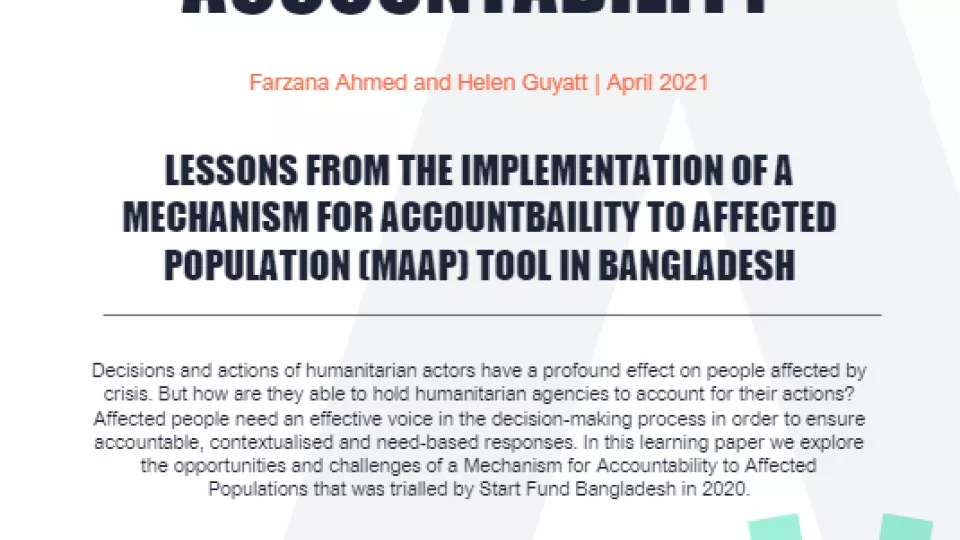
Search

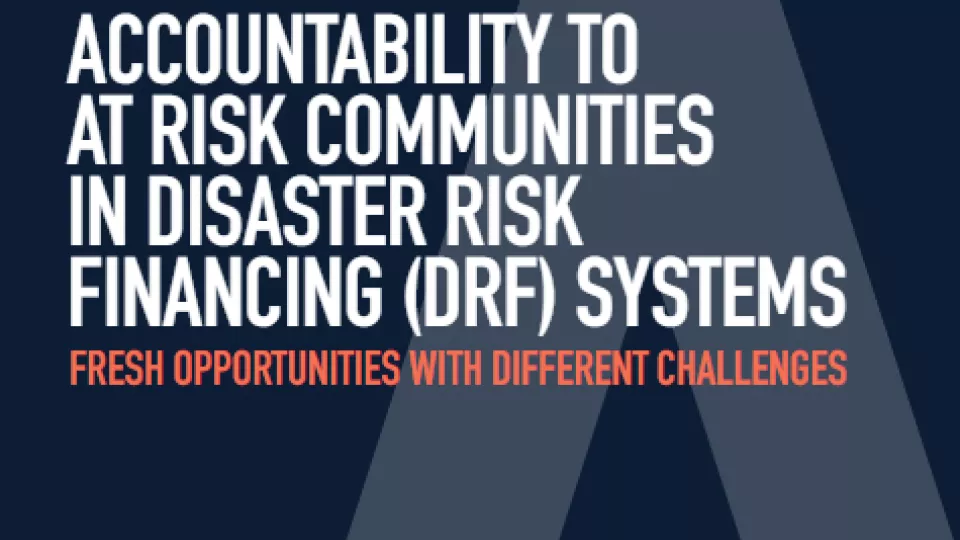
Accountability to Affected Populations in Disaster Risk Financing
This paper explores the new opportunities and challenges for ensuring accountability to affected populations related to disaster risk financing. It draws on Start Network experience in Pakistan, Senegal, Madagascar and Kenya to discuss possible issues and challenges that DRF programming can present for accountability, and steps which can be taken to address these.
Start Fund: Learning from Accountability to Crisis-Affected Communities
The study uses the Core Humanitarian Standard on Quality and Accountability (CHS) as a lens to review the extent to which Start funded projects are accountable to disaster-affected populations, and the influence this may have on the quality and relevance of these projects.
Development of Mechanism for Accountability to the Affected Population in Rapid Response (English)
Development of Mechanism for Accountability to the Affected Population in Rapid Response (Bangla)
Start Fund: Learning from Cash Programming
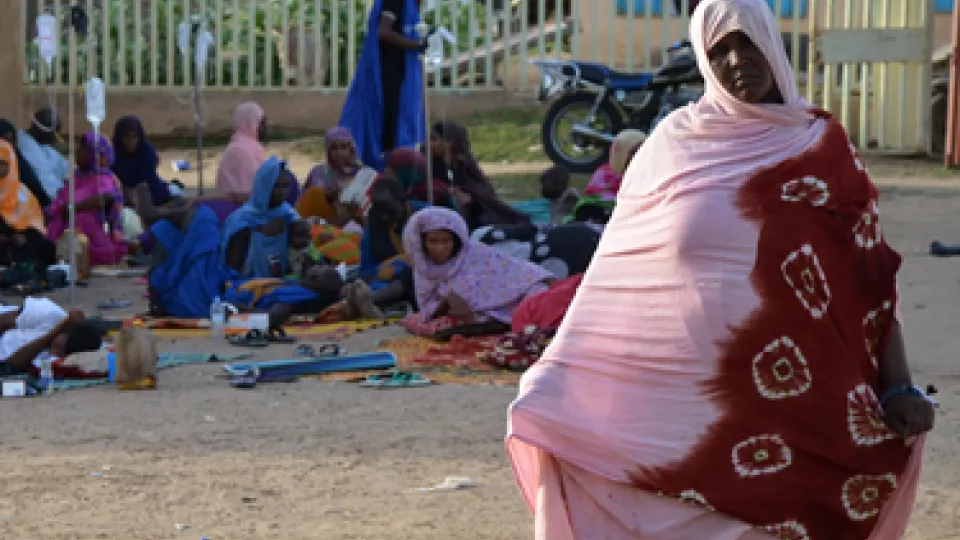
Start Fund: Learning from Slow-Onset Crises
Blockchain pilot II: summary of lessons
In 2016, a €50,000 grant to Start Network from the government of Estonia, which is leading the world in its drive to adopt the new technology, enabled us to pilot blockchain for humanitarian financing. So, in 2017 Start Network formed a partnership with a start-up social enterprise Disberse to push forward our plan to test blockchain in the delivery of humanitarian finance. Using the Disberse platform, we set out to test blockchain in a series of small disbursements. The pilot involved the creation of digital wallets on the blockchain that donors could use the transfer funding to NGOs, the NGO could then use its digital wallet to transfer the funding onto country teams. Through the pilot, we aimed to prove that blockchain could potentially be used to speed up the distribution of aid funding and trace exactly how it is spent. In this 'Blockchain Pilot II: summary of lessons' piece the Start Network, Disberse, Trócaire Ireland, Trócaire Rwanda and Caritas Rwanda review the lessons learnt during the implementation of the pilot analyse whether blockchain helped to make the delivery of humanitarian aid more effective, transparent and accountable
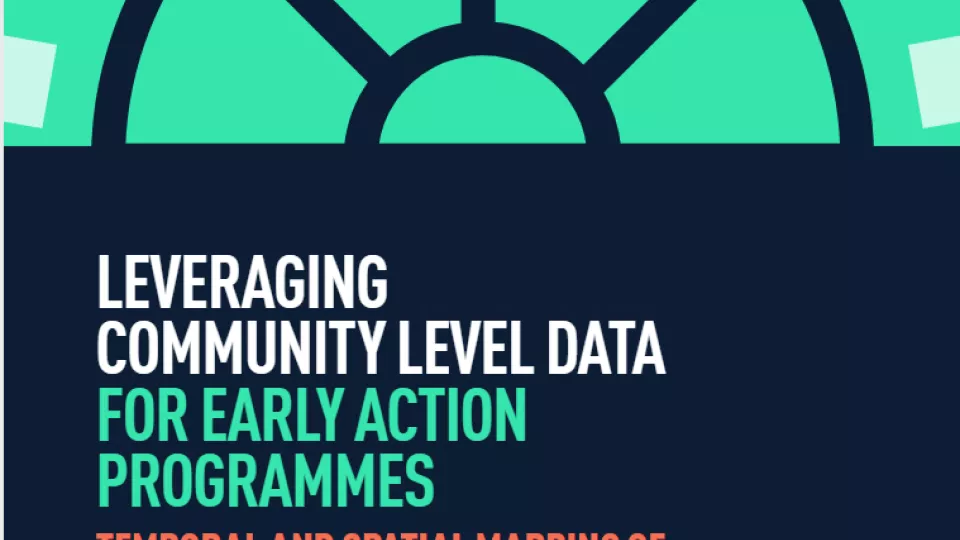
Overview: Leveraging Community Level Data for Early Action Programmes: Temporal and Spatial Mapping of Community Livelihoods in Senegal
Start Network implements a range of early action programmes to enable communities to act ahead of potential hazards. One of the challenges involved in delivering impactful early action interventions is ensuring that assistance reaches community members at the right time, i.e., before some community members are forced to resort to negative coping mechanisms such as taking children out of school, cutting down on meals or incurring debts for food provision. Intervention timing can differ within the same country and from one region or community to another. Qualitative data collected from community members provides crucial insights that help us determine the right windows of opportunity for interventions. However, this longitudinal qualitative data requires time to analyse and infer lessons, which can make it difficult for decision makers who have little time to read detailed qualitative accounts. Start Network, through our ARC Replica programme, collected qualitative data about the lived experiences of community members in various parts of Senegal over a six month period. This article explains the visualisations curated via Data Spoiler, and outlines the key findings from the monthly check-ins across 22 sentinel sites. It is intended for data practitioners and decision makers to enable them to: 1) Understand how community voices can inform early action programme design and 2) Explore new ways of using qualitative data to inform decision making around early action
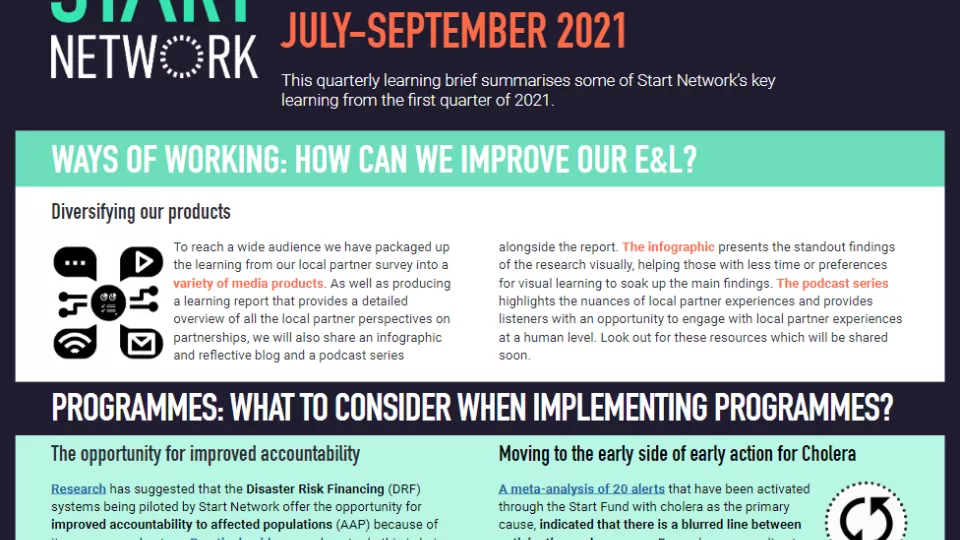
Start Network Quarterly Learning Brief - Q3 (English)
This quarterly one-page brief summarises some of Start Network’s key learning from July to September of 2021. The brief talks through the key learning takeaways and provides links to more detailed reports. It focuses on: -Ways of working: how can we improve our evidence and learning? -Programmes: what to consider when implementing programmes and -What we want to learn more about. The brief is provided in Arabic, Bangla, English, French and Spanish.
